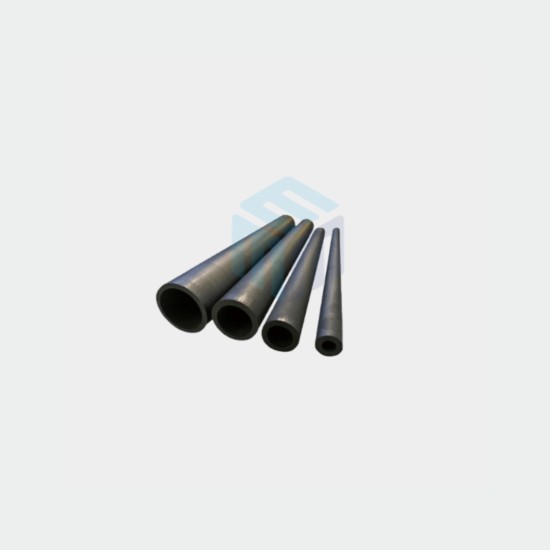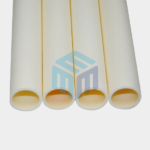Graphite rods are widely used as electrodes in various industrial and scientific applications, from electrolysis to electric arc furnaces. But what makes graphite such an ideal material for this purpose? The answer lies in its unique combination of electrical conductivity, thermal stability, and chemical resistance. Whether you’re working in metallurgy, chemical processing, or laboratory experiments, understanding the benefits of graphite electrodes can help ensure efficient and reliable performance. In this blog, we’ll explore the reasons behind the widespread use of graphite rods as electrodes and where they offer the most value.
Graphite rods are commonly used as electrodes in various applications due to several key advantages they offer:
- High Electrical Conductivity: Graphite is an excellent conductor of electricity, making it ideal for use as electrodes in electrical applications such as electrolysis, electroplating, and arc welding. Additionally, pure graphite crucibles are widely used in high-temperature applications due to their excellent thermal conductivity and resistance to thermal shock, ensuring efficient and reliable performance in various industrial processes.
- Chemical Inertness: Graphite is chemically inert and resistant to many chemicals and corrosive substances. This property makes graphite electrodes suitable for use in processes involving harsh environments or reactive materials, where other materials might corrode or react.
- High Temperature Resistance: Graphite can withstand high temperatures without significant deformation or degradation. This makes graphite electrodes suitable for applications involving intense heat, such as electric arc furnaces for metal melting and refining.
- Mechanical Strength: Graphite has good mechanical strength and can withstand mechanical stress and vibration, making it durable and long-lasting in electrode applications.
- Low Thermal Expansion: Graphite has a low coefficient of thermal expansion, meaning it expands and contracts minimally with changes in temperature. This property helps maintain dimensional stability and prevents cracking or warping during thermal cycling.
- Ease of Machining: Graphite is relatively easy to machine and shape into various electrode designs and sizes, allowing for customization to suit specific application requirements.
- Carbon-Based Material: Being a carbon-based material, graphite electrodes are compatible with carbon-containing materials, making them suitable for processes involving carbon electrodes, such as in electrolytic cells and arc furnaces.
Overall, the combination of high electrical conductivity, chemical inertness, high-temperature resistance, mechanical strength, and ease of machining makes graphite rods a preferred choice for electrodes in a wide range of industrial, scientific, and technological applications.
Conclusion:
Graphite rods are chosen as electrodes because of their excellent electrical conductivity, high-temperature resistance, and chemical stability. These properties make them ideal for applications like electrolysis, arc welding, and metal production, where reliable performance under extreme conditions is essential. Their durability, affordability, and ability to maintain structural integrity in harsh environments make graphite electrodes a preferred solution across industries. Whether for industrial-scale use or laboratory settings, graphite rods continue to be a smart and efficient choice for electrode materials.
M-Kube Enterprise is a USA company catering customized laboratory products, laboratory consumables, and laboratory solutions in the USA, India, Australia, New Zealand, Singapore, Malaysia, South Korea, Dubai, Philippines, Indonesia, and Vietnam.





